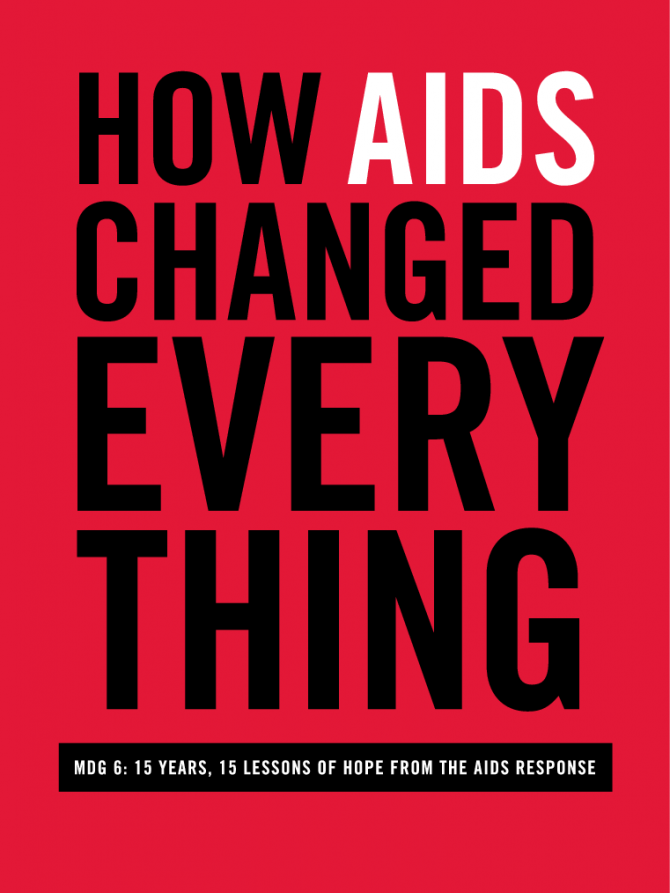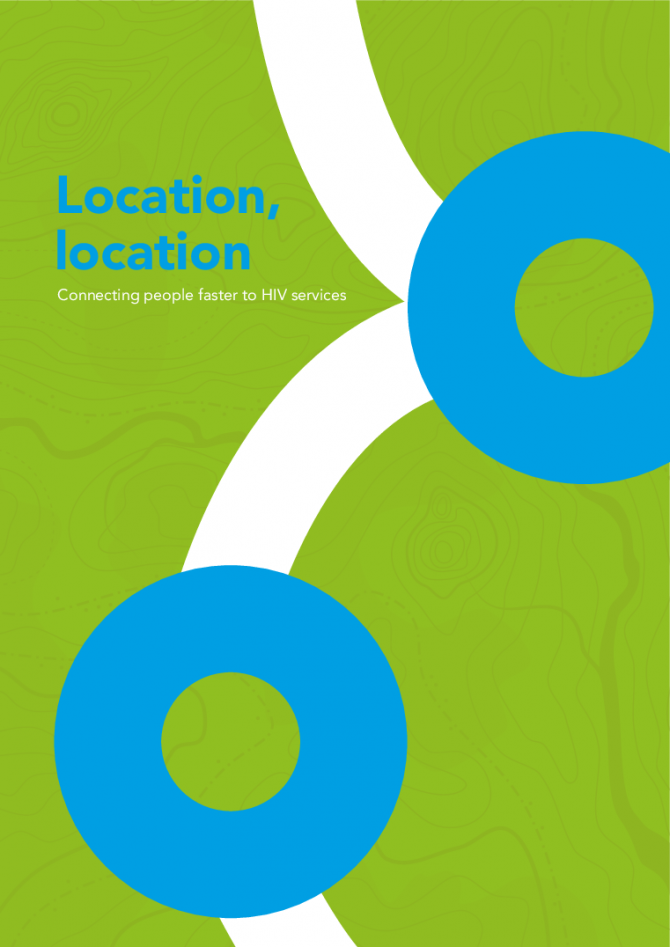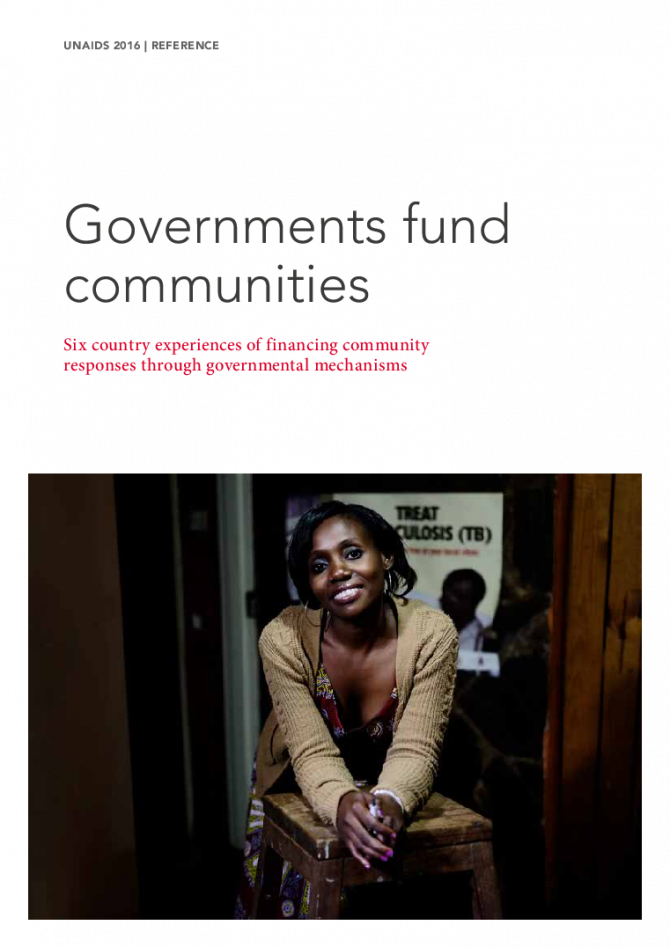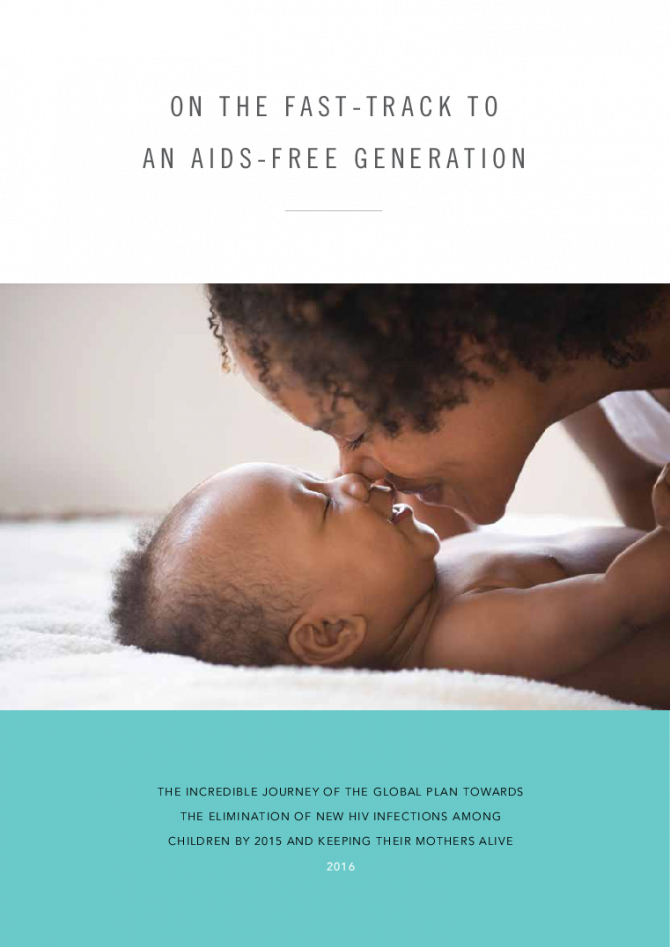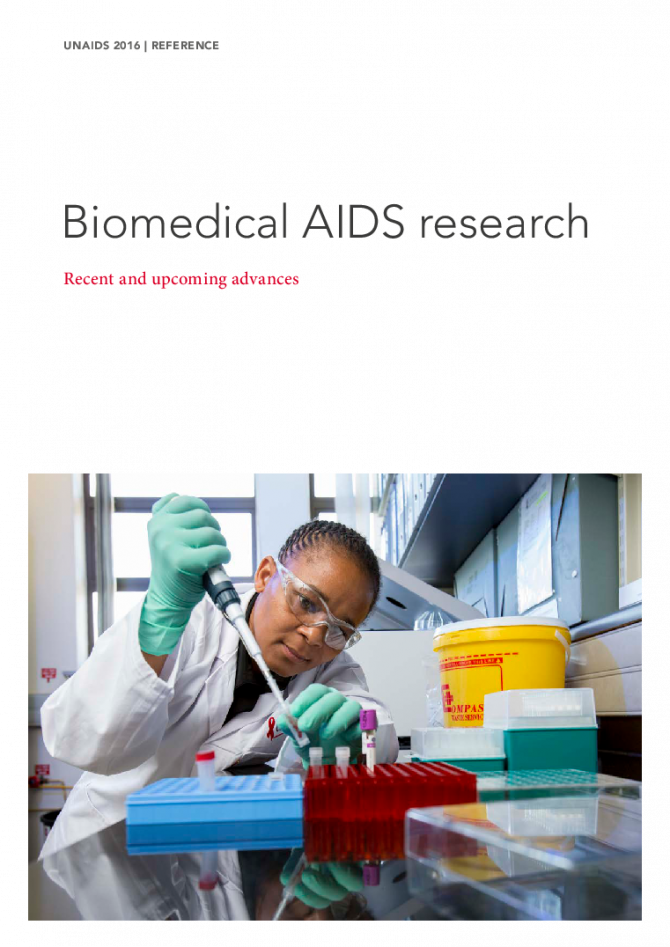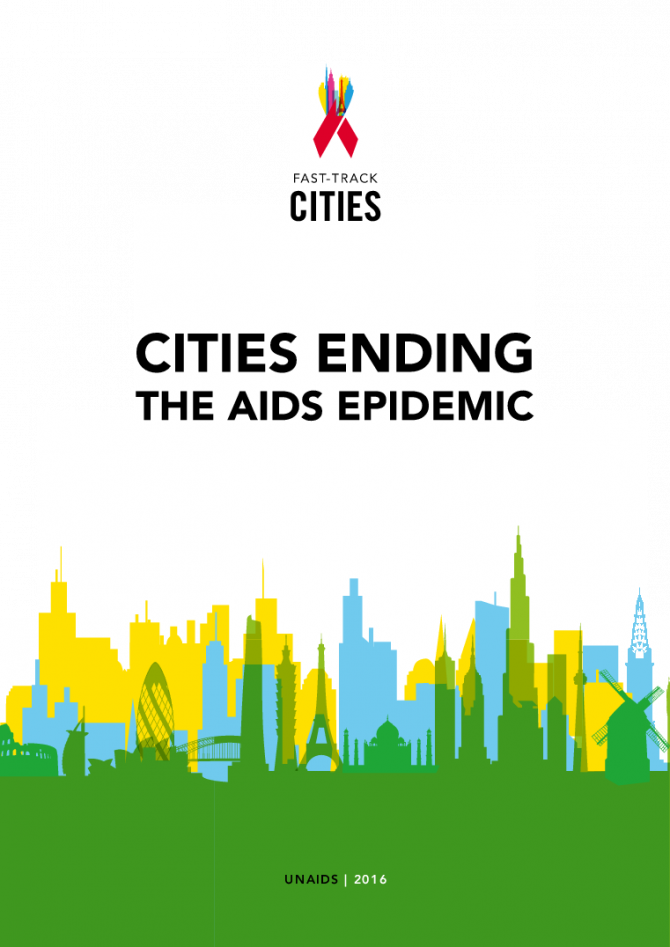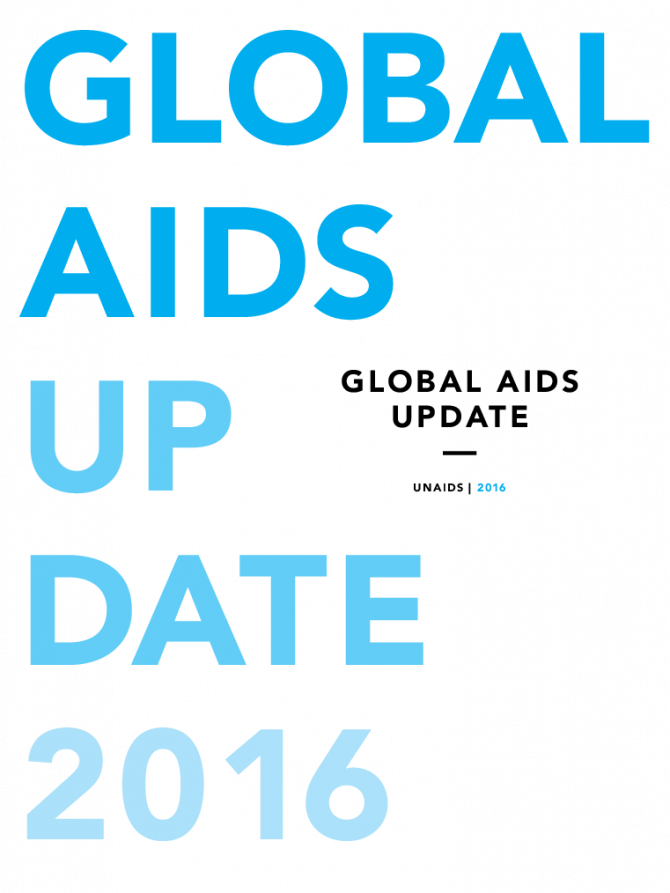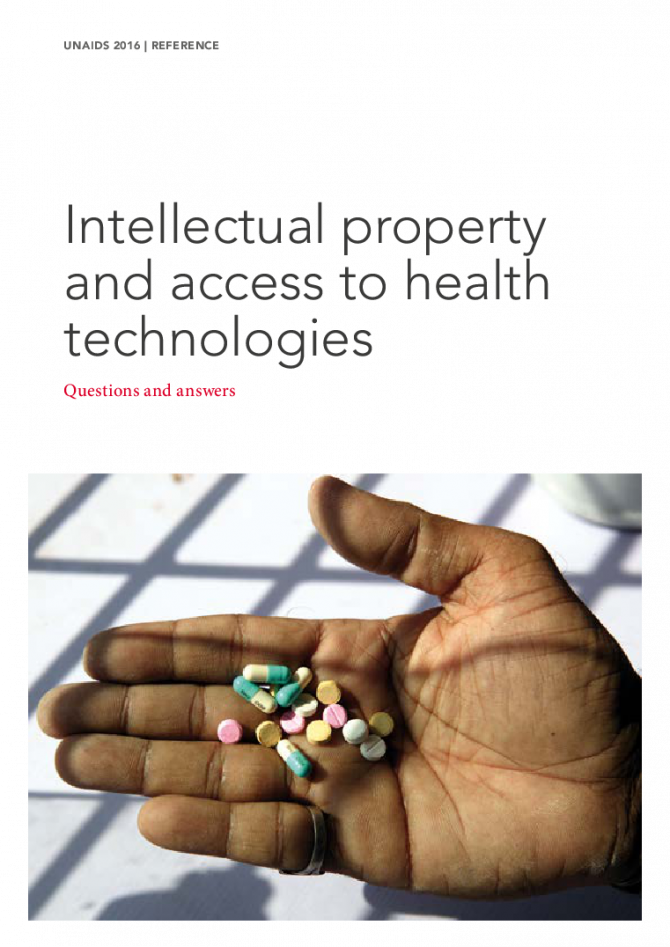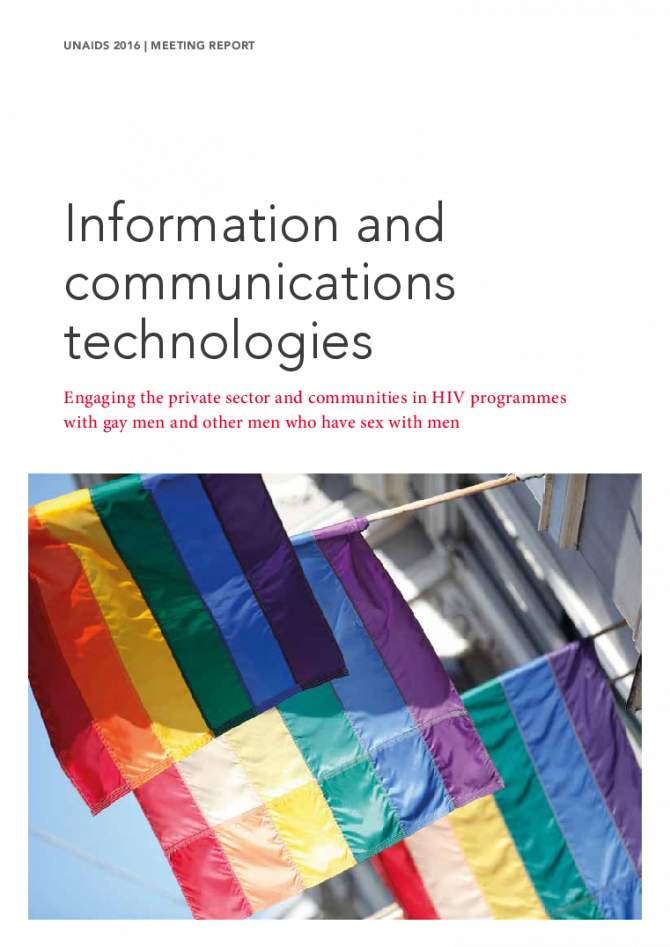Documents
How AIDS changed everything — MDG6: 15 years, 15 lessons of hope from the AIDS response
14 July 2015
We have reached a defining moment in the AIDS response. Against all odds, we have achieved the AIDS targets of Millennium Development Goal 6. AIDS changed everything. In these pages are valuable insights and ground-breaking and heart-warming experiences from the innovative and exciting work that partners, communities and countries have done and are doing in the AIDS response. There are also heart-breaking stories about the challenges that still remain. More on How AIDS changed everything
You can also view the report on Issuu Report with no annexes Annexes only
Documents
Location, location: Connecting people faster to HIV services
26 November 2013
This report has been developed following a consultation on geographic epidemiology held in Geneva, Switzerland 25–26 July, 2013. Many of the examples used in this report were presented at that meeting. UNAIDS would like to thank the meeting participants and the reviewers of this document for their contributions.
Documents
On the Fast-Track to an AIDS-free generation
08 June 2016
This report presents the final results of the Global Plan towards the elimination of new HIV infections among children by 2015 and keeping their mothers alive. It summarizes country progress from 2009 to 2015. Entitled “On the Fast-track to an AIDS-Free Generation”, the report also highlights programmatic interventions undertaken at the country, regional and global levels. The end of the Global Plan heralds the new effort to stop pediatric AIDS, Start Free Stay Free AIDS Free which was launched in 2016
Country-specific progress fact sheets are available here
Documents
Biomedical AIDS research: Recent and upcoming advances
02 May 2016
Scientific evidence is essential for policies and programmes to advance the vision of UNAIDS of zero HIV infections, zero discrimination and zero AIDS-related deaths. New scientific information is becoming available at a rapid pace, and many of the findings are potentially important to guide future action against AIDS. To ensure this, UNAIDS has access to the latest scientific developments; a UNAIDS Scientific Expert Panel was established to advise UNAIDS on major new scientific discoveries and research evidence as well as research gaps and strategic AIDS research needs. The Scientific Expert Panel comprises more than 40 scientists from around the world with expertise in a wide range of disciplines, including epidemiology, behavioural science, virology, diagnostics, pathogenesis, immunology, treatment, prevention and cure.
Documents
Cities ending the AIDS epidemic
05 June 2016
Cities have inherent advantages in responding to complex health problems such as HIV. They are dynamic centres of economic growth, education, innovation and positive social change. Cities have large service infrastructures and—through the power of networks—have the potential to deliver services where they are most needed, in a way that is both equitable and efficient while respecting the dignity of its citizens.
Documents
Global AIDS Update 2016
31 May 2016
The world has committed to ending the AIDS epidemic by 2030. How to reach this bold target within the Sustainable Development Goals is the central question facing the United Nations General Assembly High-Level Meeting on Ending AIDS, to be held from 8 to 10 June 2016. The extraordinary accomplishments of the last 15 years have inspired global confidence that this target can be achieved.
Documents
The need for routine viral load testing
27 May 2016
Greatly expanded access to routine viral load testing will be a game-changer in the global response to AIDS. Routine viral load tests improve treatment quality and individual health outcomes for people living with HIV, contribute to prevention, and potentially reduce resource needs for costly second- and third-line HIV medicines.
Documents
Intellectual property and access to health technologies
27 May 2016
Documents
Information and communications technologies
04 May 2016
Information and communication technology (ICT) represents an important new resource for enhancing the reach and effectiveness of HIV programming. Gay men and other men who have sex with men already use ICT to facilitate many kinds of interactions, and a host of private for-profit platforms exist to help men negotiate offline social and sexual encounters.

